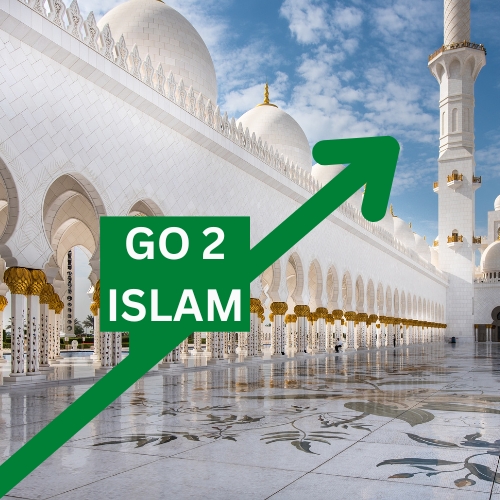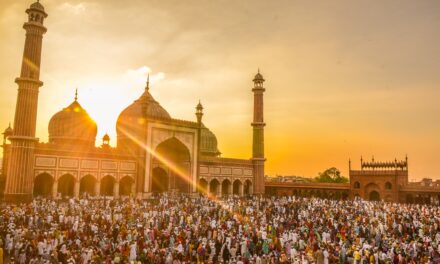The belief in angels is a fundamental aspect of Islam, and is mentioned extensively in the Quran and Hadith. Angels are seen as spiritual beings created by God to perform specific tasks, and they are often depicted as messengers, protectors, and record keepers.
In Islamic tradition, angels are created from light, and they are mentioned by name in the Quran, including Gabriel, Michael, and Israfil. Gabriel is known as the angel of revelation and is believed to have brought the Quran to Muhammad. Michael is the angel of protection and is responsible for guiding the souls of the righteous to heaven. Israfil is the angel of the trumpet and is believed to be responsible for signaling the end of the world.
In addition to these well-known angels, there are also angels responsible for overseeing various aspects of the natural world, including the wind, the rain, and the stars. There are also angels who serve as protectors, watching over individuals and providing them with guidance and support. These angels are known as the Guardian Angels, and are believed to be appointed to each person at birth.
Angels also play a role in Islamic eschatology, as they are believed to be involved in the end times. According to Islamic tradition, the angel Gabriel will blow the trumpet to signal the end of the world, and the angels will then take part in the judgment of souls. It is believed that the angels will accompany the souls of the righteous to heaven, while the souls of the wicked will be sent to hell.
In Islam, angels are seen as obedient servants of God and are not worshiped as divine beings. Instead, they are revered and respected as messengers and servants of God, and their role is to carry out God’s will and provide guidance to humans.
The role of angels in Islam is also reflected in various Islamic rituals and practices, including the call to prayer, which is believed to be a message from the angels to the faithful. In addition, angels are often invoked in du’a, or supplication, as a way of seeking divine guidance and protection.
The belief in angels is an important aspect of Islamic spirituality, and it is seen as a means of connecting with the divine and gaining a deeper understanding of God’s will. By recognizing the presence of angels and seeking their guidance, Muslims are able to deepen their relationship with God and live a more virtuous life.
In conclusion, the belief in angels is a central aspect of Islam, and is mentioned extensively in the Quran and Hadith. Angels are seen as spiritual beings created by God to perform specific tasks, and they play a key role in Islamic eschatology, Islamic rituals, and Islamic spirituality. By recognizing the presence of angels and seeking their guidance, Muslims are able to deepen their relationship with God and live a more virtuous life.
Islamic tradition also recognizes the existence of djinn, who are believed to be a separate creation from angels and humans. The djinn are often portrayed as powerful and unpredictable beings that can either help or harm humans, depending on their motivations. However, despite their potential for mischief, the djinn are not evil by nature and can choose to follow the path of righteousness.
The concept of angels and djinn in Islam is closely related to the idea of barakah, or blessings. Barakah refers to the flow of divine blessings that can be found in all aspects of life, and it is believed that angels and djinn play a role in distributing these blessings. For example, when a Muslim performs acts of charity or good deeds, they are believed to increase their barakah and bring blessings into their life.
Another important aspect of Islamic angelology is the idea of the angels’ role in recording the actions of humans. The Quran mentions that angels are responsible for recording the deeds of each person, and that these records will be used to determine their fate in the afterlife. This idea serves as a powerful motivator for Muslims to lead a virtuous life, as they know that their actions are being recorded and will be judged by God.
In Islamic art and literature, angels are often depicted as beautiful, powerful beings with wings and halos. They are seen as symbols of purity, wisdom, and divine guidance, and their image is used to inspire feelings of awe and reverence.
One of the most famous depictions of angels in Islamic art is the muqarnas, a type of architectural decoration that features interlocking geometric shapes. The muqarnas is often used to decorate the domes of Islamic buildings, and its intricate design is meant to symbolize the complex hierarchy of the angels and their role in the cosmos.
In conclusion, the belief in angels is a central aspect of Islam, and is an important part of Islamic tradition and spirituality. Angels are seen as obedient servants of God, who play a key role in carrying out God’s will, guiding humans, and distributing blessings. By recognizing the presence of angels and seeking their guidance, Muslims are able to deepen their relationship with God and live a more virtuous life. Whether through the call to prayer, acts of charity, or contemplation of the beauty of Islamic art, the belief in angels provides a powerful source of inspiration and guidance for Muslims.




Reading your article has greatly helped me, and I agree with you. But I still have some questions. Can you help me? I will pay attention to your answer. thank you.
Yes, please ask your questions.